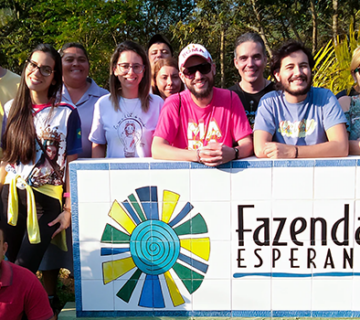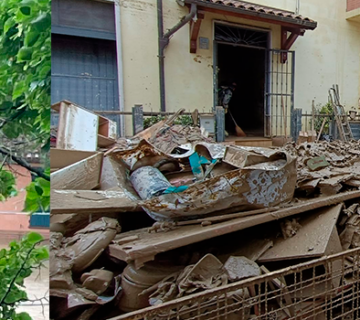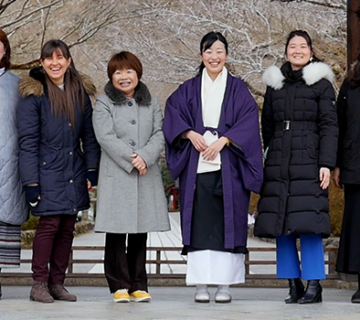“In a world marked by dramatic tensions, even through this initiative, the Focolare Movement intends to propose fraternity as a way that leads to peace”. The opening of this great gathering held at the SportArena of Budapest, packed to full capacity by 11,000 participants, who came from 92 countries from all over the world, consisted of the address of Pope Benedict XVI, read by Cardinal Peter Erdo, the Archbishop of Budapest and the Primate of Hungary. The ideas, experiences and concrete initiatives offered during the gathering, proposed universal fraternity as an answer to the many challenges of today. The Pope encouraged those participating “to continue the fruitful work brought ahead up till now, incarnating the Gospel of love in the affairs of each day”.
Among those present in the ultra modern Hungarian sports stadium, there were followers of other religions, among whom a good number of Muslims from Algeria, Christians of various denominations, and members belonging to 13 other Catholic Movements and New Communities. There were also civil and religious personalities, among them Peter Harrach, the Vice-president of the Hungarian Parliament. This event followed the two day meeting which was held in the Hungarian capital city and in which more than 9000 “volunteers of God” took part. The “volunteers of God”, a branch of the Focolare Movement committed to contribute towards the renewal of society, was commemorating the 50th anniversary of its birth, as an answer to the tragic “events of Budapest”.
50 years after those tragic events, the founder of the Focolare Movement spoke about the situation of the world today: she spoke about the signs of a humanity engulfed by “a collective and cultural darkness”. In her address, read by Valeria Ronchetti, one of her first companions, Chiara Lubich spoke of “the collective darkness of our times, which has progressively fallen over humanity, especially in the West”, where relativism predominates and where ethics can no longer keep up with the scientific and technological advancements taking place at a frenetic pace. The West is searching “for incisive ideas, an ideal that opens the way and provides answers to the many tormenting questions, and that sheds a light to follow”.
While repeating the words of John Paul II, Chiara indicated the way in the “tragedy of a God, who cries out: ‘My God, my God, why have you forsaken me?’” “This was his inner passion, his darkest night, the climax of his suffering”. It is a tragedy that sheds light on our paths: “If we are able to encounter Him in every suffering, if we love Him, by saying to the Father as Jesus did on the cross: ‘Father, into your hands I commend my spirit’ (Lk 23:46), then with Him the night will pass away and the light will illumine us”. She also said that “the Movement has acquired an extremely rich experience”, one that has seen new developments during these last years.

Chiara spoke of “inundations of light” – borrowing a term from John Chrysostom, a great Father of the Church – which illuminates today’s culture in its various aspects. These inundations are a result of a “dialogue, which the Focolare Movement began some years ago. It is a dialogue between the wisdom which the charisma of unity has to offer and the various fields of human knowledge and endeavour”: from politics to ecology; from communication to health, law and economy.
This development is the work of the Holy Spirit, that “precisely in our times has been generous, forcefully penetrating the human family with various charismas, which then gave birth to movements, spiritual currents, new communities and works”.
It is not a novelty that “civic and economic experiences originate from spiritual currents born from charismas. The story of humanity is studded with them”. This was how Luigino Bruni, professor of political economics at the University of Milan – Bicocca (Italy), introduced the first of the four round table talks held to face the challenges encountered in the fields of economics, law, communications and politics. “The inspiring spark of that, which was immediately called Economy of Communion” occurred in 1991, during Chiara Lubich’s trip to San Paolo, Brazil, in the face of the “scandal posed by a world of luxurious skyscrapers and inhumane shacks”. “Many modern firms, efficient in their running, which operate within the market economy” have become the protagonists of this project, giving also rise to industrial estates. The novelty of this project is that the profits produced are used to help the growth of the firm, thus creating employment opportunities, to form “new people” who are ready to live this new culture, and to help those who have immediate needs.
“It is not just a novelty of life, but also a novelty of thought, it is a doctrinal novelty”. Kelen Leite, a young Brazilian researcher, spoke about this. She is one of about 200 young university students who published their thesis on the Economy of Communion. She confirmed that “some universities were now teaching this theory along with other theories in economics courses”.
Facts give evidence: During the massive economic crisis that hit Asia in 1997, a rural bank in the Philippines, set up to help farmers and operating in line with the Economy of Communion, not only managed to overcome the crisis, but it bravely managed to set up a project of micro-finance, lending out money to the poor without collateral. A new credit agency was born and presently this is still doing quite well. This is the experience of Tess and Francis Ganzon, of the board of directors of Bangko Kabayan.
Launching of the “Brotherhood with Africa” project – A chance open to everyone to contribute to a new economy. This project, presented at the end of the morning session, aims at increasing human and professional resources in Africa, so that the Africans themselves will contribute towards the social and cultural development of their country. Young and adult Africans, who lack financial means, will be given support in the form of scholarships for university or post-university professional courses. Those who will benefit from this project will be asked to work in their country, at least for some time, after they finish their studies.
The three other challenges in the fields of law, communication and politics were tackled in the afternoon session.


 Italiano
Italiano Español
Español Français
Français Português
Português


